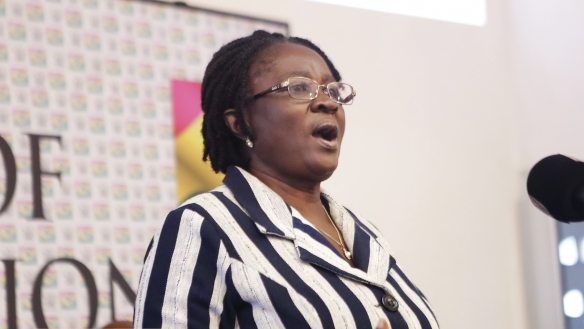About 85% of all households who have children in public pre-schools still pay some form of levies and charges.
This is according to the 2014 Citizens’ Assessment Survey on the capitation grant scheme.
This is regardless of the introduction of capitation grants to eliminate these charges and levies.
[contextly_sidebar id=”L3rYAutm6WSuWUG70rVm5OQQrGyLNOVo”]Under the scheme, public basic schools in Ghana are entitled to receive GHC 4.50 per an enrolled pupil per academic year to be used primarily for the running of the school.
The report also stated that though capitation grant has also eliminated payment of some of the levies and charges the overwhelming majority of households in Ghana still pay a variety of levies and charges for their children attending basic school even amongst the poorest 20% of the population where three out of four households pay levies and charges.
A validator of the report, Professor Stephen Adei insisted that this means the capitation system is failing.
“We cannot run away from the main question, this is whether capitation grant has succeeded in eliminating all forms of levies and charges at the basic level. We know this is not true, that is why the capitation system is failing,” he noted.
The report also revealed that the capitation grant only constituted 38% of the total expenditure of a school in the 2012/2013 academic year.
Professor Adei said “In effect… there is no free education at the basic level. This is what the academics have been failing to say…”
This implied that the basic schools had to cover more than 60% of their budgetary requirements from other sources leading to the charges imposed on parents who sent their children to school.
The report also revealed that about 75% of households who have children in public primary schools pay levies and charges too.
The survey further identified a number of key challenges that hinder the effective implementation of the capitation grant scheme thus besides the inadequate allocation of funds to the schools, delays in the release of funds, inconsistencies in the application and management procedures and high transaction costs.
The Education Minister, Professor Jane Naana Opoku Agyemang has stated that government is implementing an additional grants programme to make more funds available for schools.
This is to help government completely get rid of the additional charges and levies burdening households.
The Minister made this known at the launch of the Citizens’ Assessment Survey report by the National Development Planning Commission (NDPC).
Background on the report:
The Citizens’ Assessments Survey is a nationally representative household survey aimed at answering the questions of whether the capitation grant is achieving its objectives of eliminating special levies and other charges at the basic school level.
For the 2014 round of the survey, a total of 2,245 households and 441 public basic schools were sampled from 151 enumeration areas and 20 districts across all ten regions, data was collected in May 2014.
By: Raymond Acquah/citifmonline.com/Ghana


